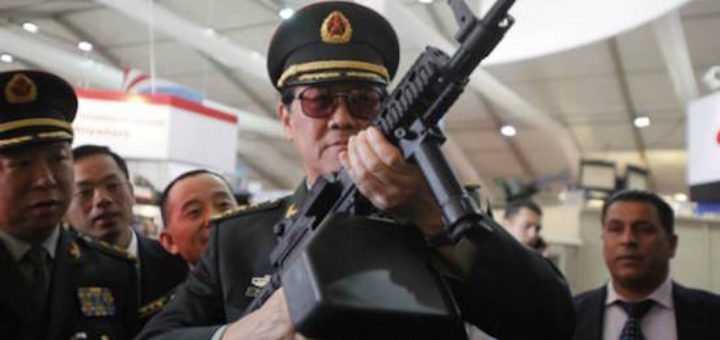Beijing continues unceasingly to develop its « Silk Road » project. China’s vice-President, Wang Qishan, has undertaken a tour of the Near East which took him to Israël for four days. According to the agreements which have already been signed, within two years China will control the major part of Israël’s agro-food industry, its high technology and its international exchanges. A free trade agreement should follow, and the geopolitics of the whole region will be turned upside down.
YUAN, PETRO, WAR MACHINE USA
The petro-yuan bombshell
The new 55-page “America First” National Security Strategy (NSS), drafted over the course of 2017, defines Russia and China as “revisionist” powers, “rivals”, and for all practical purposes strategic competitors of the United States.
The NSS stops short of defining Russia and China as enemies, allowing for an “attempt to build a great partnership with those and other countries”. Still, Beijing qualified it as “reckless” and “irrational.” The Kremlin noted its “imperialist character” and “disregard for a multipolar world”. Iran, predictably, is described by the NSS as “the world’s most significant state sponsor of terrorism.”
Russia, China and Iran happen to be the three key movers and shakers in the ongoing geopolitical and geoeconomic process of Eurasia integration.
The NSS can certainly be regarded as a response to what happened at the BRICS summit in Xiamen last September. Then, Russian President Vladimir Putin insisted on “the BRIC countries’ concerns over the unfairness of the global financial and economic architecture which does not give due regard to the growing weight of the emerging economies”, and stressed the need to “overcome the excessive domination of a limited number of reserve currencies”.
That was a clear reference to the US dollar, which accounts for nearly two thirds of total reserve currency around the world and remains the benchmark determining the price of energy and strategic raw materials.
And that brings us to the unnamed secret at the heart of the NSS; the Russia-China “threat” to the US dollar.
The CIPS/SWIFT face-off
The website of the China Foreign Exchange Trade System (CFETS) recently announced the establishment of a yuan-ruble payment system, hinting that similar systems regarding other currencies participating in the New Silk Roads, a.k.a. Belt and Road Initiative (BRI) will also be in place in the near future.
Crucially, this is not about reducing currency risk; after all Russia and China have increasingly traded bilaterally in their own currencies since the 2014 US-imposed sanctions on Russia. This is about the implementation of a huge, new alternative reserve currency zone, bypassing the US dollar.
The decision follows the establishment by Beijing, in October 2015, of the China International Payments System (CIPS). CIPS has a cooperation agreement with the private, Belgium-based SWIFT international bank clearing system, through which virtually every global transaction must transit.
What matters in this case is that Beijing – as well as Moscow – clearly read the writing on the wall when, in 2012, Washington applied pressure on SWIFT; blocked international clearing for every Iranian bank; and froze $100 billion in Iranian assets overseas as well as Tehran’s potential to export oil. In the event Washington might decide to slap sanctions on China, bank clearing though CIPS works as a de facto sanctions-evading mechanism.
Last March, Russia’s central bank opened its first office in Beijing. Moscow is launching its first $1 billion yuan-denominated government bond sale. Moscow has made it very clear it is committed to a long term strategy to stop using the US dollar as their primary currency in global trade, moving alongside Beijing towards what could be dubbed a post-Bretton Woods exchange system.
Gold is essential in this strategy. Russia, China, India, Brazil & South Africa are all either large producers or consumers of gold – or both. Following what has been extensively discussed in their summits since the early 2010s, the BRICS are bound to focus on trading physical gold.
Markets such as COMEX actually trade derivatives on gold, and are backed by an insignificant amount of physical gold. Major BRICS gold producers – especially the Russia-China partnership – plan to be able to exercise extra influence in setting up global gold prices.
The ultimate politically charged dossier
Intractable questions referring to the US dollar as top reserve currency have been discussed at the highest levels of JP Morgan for at least five years now. There cannot be a more politically charged dossier. The NSS duly sidestepped it.
The current state of play is still all about the petrodollar system; since last year what used to be a key, “secret” informal deal between the US and the House of Saud is firmly in the public domain.
Even warriors in the Hindu Kush may now be aware of how oil and virtually all commodities must be traded in US dollars, and how these petrodollars are recycled into US Treasuries. Through this mechanism Washington has accumulated an astonishing $20 trillion in debt – and counting.
Vast populations all across MENA (Middle East-Northern Africa) also learned what happened when Iraq’s Saddam Hussein decided to sell oil in euros, or when Muammar Gaddafi planned to issue a pan-African gold dinar.
But now it’s China who’s entering the fray, following on plans set up way back in 2012. And the name of the game is oil-futures trading priced in yuan, with the yuan fully convertible into gold on the Shanghai and Hong Kong foreign exchange markets.
The Shanghai Futures Exchange and its subsidiary, the Shanghai International Energy Exchange (INE) have already run four production environment tests for crude oil futures. Operations were supposed to start at the end of 2017; but even if they start sometime in early 2018 the fundamentals are clear; this triple win (oil/yuan/gold) completely bypasses the US dollar. The era of the petro-yuan is at hand.
Of course there are questions on how Beijing will technically manage to set up a rival mark to Brent and WTI, or whether China’s capital controls will influence it. Beijing has been quite discreet on the triple win; the petro-yuan was not even mentioned in National Development and Reform Commission documents following the 19th CCP Congress last October.
What’s certain is that the BRICS supported the petro-yuan move at their summit in Xiamen, as diplomats confirmed to Asia Times. Venezuela is also on board. It’s crucial to remember that Russia is number two and Venezuela is number seven among the world’s Top Ten oil producers. Considering the pull of China’s economy, they may soon be joined by other producers.
Yao Wei, chief China economist at Societe Generale in Paris, goes straight to the point, remarking how “this contract has the potential to greatly help China’s push for yuan internationalization.”
The hidden riches of “belt” and “road”
An extensive report by DBS in Singapore hits most of the right notes linking the internationalization of the yuan with the expansion of BRI.
In 2018, six major BRI projects will be on overdrive; the Jakarta-Bandung high-speed railway, the China-Laos railway, the Addis Ababa-Djibouti railway, the Hungary-Serbia railway, the Melaka Gateway project in Malaysia, and the upgrading of Gwadar port in Pakistan.
HSBC estimates that BRI as a whole will generate no less than an additional, game-changing $2.5 trillion worth of new trade a year.
It’s important to keep in mind that the “belt” in BRI should be seen as a series of corridors connecting Eastern China with oil/gas rich regions in Central Asia and the Middle East, while the “roads” soon to be plied by high-speed rail traverse regions filled with – what else – un-mined gold.
A key determinant of the future of the petro-yuan is what the House of Saud will do about it. Should Crown Prince – and inevitable future king – MBS opt to follow Russia’s lead, to dub it as a paradigm shift would be the understatement of the century.
Yuan-denominated gold contracts will be traded not only in Shanghai and Hong Kong but also in Dubai. Saudi Arabia is also considering to issue so-called Panda bonds, after the Emirate of Sharjah is set to take the lead in the Middle East for Chinese interbank bonds.
Of course the prelude to D-Day will be when the House of Saud officially announces it accepts yuan for at least part of its exports to China. A follower of the Austrian school of economics correctly asserts that for oil-producing nations, higher oil price in US dollars is not as important as market share; “They are increasingly able to choose in which currencies they want to trade.”
What’s clear is that the House of Saud simply cannot alienate China as one of its top customers; it’s Beijing who will dictate future terms. That may include extra pressure for Chinese participation in Aramco’s IPO. In parallel, Washington would see Riyadh embracing the petro-yuan as the ultimate red line.
An independent European report points to what may be the Chinese trump card; “an authorization to issue treasury bills in yuan by Saudi Arabia”; the creation of a Saudi investment fund; and the acquisition of a 5% share of Aramco.
Nations under US sanctions such as Russia, Iran and Venezuela will be among the first to embrace the petro-yuan. Smaller producers such as Angola and Nigeria are already selling oil/gas to China in yuan.
And if you don’t export oil but is part of BRI, such as Pakistan, the least you can do is replace the US dollar in bilateral trade, as Interior Minister Ahsan Iqbal is currently evaluating.
A key feature of the geoconomic heart of the world moving from the West to Asia is that by the start of the next decade the petro-yuan and trade bypassing the US dollar will be certified facts on the ground across Eurasia.
The NSS for its part promises to preserve “peace through strength”. As Washington currently deploys no less than 291,000 troops in 183 countries and has sent Special Ops to no less than 149 nations in 2017 alone, it’s hard to argue the US is at “peace” – especially when the NSS seeks to channel even more resources to the industrial-military complex.
“Revisionist” Russia-China have committed an unpardonable sin; they have concluded that pumping the US military budget by buying US bonds that allow the US Treasury to finance a multi-trillion dollar deficit without raising interest rates is an unsustainable proposition for the Global South. Their “threat” – under the framework of the BRICS as well as the SCO, which includes prospective members Iran and Turkey – is to increasingly settle bilateral and multilateral trade bypassing the US dollar.
It ain’t over till the fat (golden) lady sings. When the beginning of the end of the petrodollar system – established by Kissinger in tandem with the House of Saud way back in 1974 – becomes a fact on the ground, all eyes will be focused on the NSS counterpunch. >>http://thesaker.is/the-petro-yuan-bombshell/<<
>>http://theartof12.blogspot.com/2017/12/usa-imperial-empire-trump-gets-to-be.html<<
CULTURE? DOVE WAS THE FIRST TRUE ABSTRACT EXPRESSIONIST, WHAT HAPPENED? MONEY ISN’T CULTURE
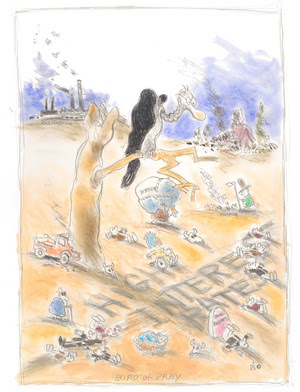
Cultural Diplomacy in a World of Conflict. The Relationship Between Culture and Empire
Keynote Speech at the International Conference on Cultural Diplomacy, “Promoting Global Collaboration, Unity and Peace through Cultural Diplomacy” By Dr. Hans Köchler, Global Research, December 24, 2017, Academy for Cultural Diplomacy 20 December
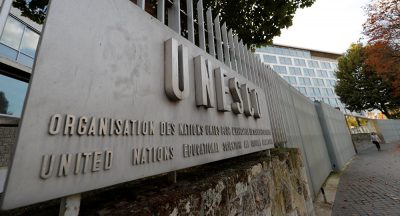
“Since wars begin in the minds of men, it is in the minds of men that the defences of peace must be constructed.” This is how UNESCO, the United Nations Educational, Scientific and Cultural Organization, defines its mission in the first sentence of its Constitution, adopted shortly after the end of the Second World War; and this is how the role of culture must be seen in the context of worldwide tension and conflict today. In our era of global interconnectedness and interdependence, issues of culture and cultural identity have indeed become of crucial importance for peace – irrespective of whether we subscribe to Samuel Huntington’s earlier diagnosis or not.[1] In order to understand and properly evaluate the meaning of “cultural” diplomacy, we shall briefly reflect on the nature of culture in the context of politics, and in particular of international relations.[2]
As the most comprehensive framework of reference for a community’s self-realization in its unique Lebenswelt (“life-world,” to borrow from Edmund Husserl’s phenomenology),[3] culture, through all of history, has proven its resilience vis-à-vis political power, even in the form of military force. The ancient Greek world-view – expressed in philosophy, science and arts – shaped cultural identity in the powerful Roman Empire that conquered the Greek city states; Arab-Islamic culture – to give just one other example – was able to survive under the Mongol Empire where each of the successor states adopted the dominant local religion (a point particularly stressed by Amy Chua in her far-reaching analysis of the importance of cultural inclusiveness and tolerance for the building of empires).[4] Culture rooted in religion has proven particularly resilient vis-à-vis political power as has been evident in the eventual fate of Marxism-Leninism in the former Soviet Empire (including in occupied Afghanistan), of Western-inspired modernism under the Shah of Iran, or of a dogmatic version of secularism in the Turkish Republic.
In world history, culture has indeed shaped politics; in the other direction, the influence was often much less successful, and certainly less sustainable. Even as regards the history of colonialism, the verdict is still out. Where the conqueror did not, or was not able to, eliminate the native population, the invader’s culture was often simply superimposed over indigenous traditions that, in turn, redefined and reshaped the dominant culture. This is also evident in the practice of the Christian faith under African or South American traditions. The relationship between culture and empire[5] is certainly more complex than the advocates of cultural supremacy have been willing to admit through the centuries; it is definitely not unidirectional.[6]
Unlike culture (or, as its most general expression, civilization), politics is not necessarily a comprehensive phenomenon, driven by the human desire to understand, and interpret, the world as such and defining man’s position in it. In the real – not to be confused with the ideal – world, relations between political entities have always been a competition for power, motivated by the pursuit of the “national interest.”[7] It is a historical reality that those interests – always oriented towards the “good life” of the nation – have all too often been asserted in the course of war. In all such situations, issues of culture and cultural identity have been subordinated to political considerations. Culture has often been instrumentalized for the purposes of legitimation. As is again the case in our time, in the era of a “global war on terror,” the international use of force (in the service of national interests) is justified as defense of “civilization” against its enemies.[8]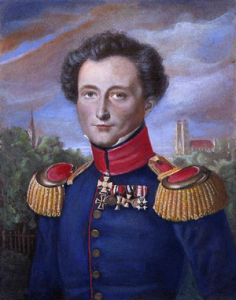
However, if war is the “continuation of politics by other means,” as von Clausewitz famously said,[9] one may ask the question whether cultural diplomacy (that belongs to the realm of politics) can help to prevent, or curb, conflict – or at least contribute to a negotiated settlement? In the political context, and even more so in international relations, we must be aware of the “dual use” aspect of culture (if I may borrow, for a moment, from arms control terminology). Especially in situations of armed confrontation, culture can be an element of indoctrination as well as of education. While the former means the instrumentalization of cultural identity in the service of war propaganda, the latter relates to information that may help to expose stereotypes and overcome prejudice.
Regrettably, at the beginning of the 21st century, the former aspect appears to have become the dominant one. Many of the looming confrontations and ongoing conflicts are portrayed in the framework of a “clash of civilizations,” namely a vicious cycle of cultural stereotyping and use of force.[10] This has been particularly the case with so-called humanitarian interventions that have become a typical feature of post-Cold War power politics, and have been part of a wider strategic agenda of “régime change” – with devastating consequences for peace and stability far beyond the affected regions. The instrumentalization of notions such as “democracy,” “human rights,” “rule of law” for essentially political purposes has not only discredited those values and ideals, but has become a major obstacle to a stable and peaceful world order. Cultural exclusivism – the insistence on one’s own world-view and value system as being the universal one – has provoked perpetual resistance and produced counter-narratives from other cultural communities. How can, in such a confrontational scenario, issues of culture and cultural identity play again a constructive role?
What is needed is a grand design of cultural diplomacy that must be shaped by the recognition of mutuality (i.e. an understanding that cultural cooperation is essentially a two-way project), and that is aware of the integral aspect of culture, which may be described by our notion of the “dialectics of cultural self-comprehension.”[11] Culture can never flourish in an insular, abstract realm; accordingly, it must be propagated in a dialogical manner. Thus, cultural foreign policy as such is not compatible with an imperialist[12] agenda – not to speak of an agenda of war. Culture is not a mere corollary of politics, but a defining element of it. Only if politicians realize that there is no supremacy of politics over culture is there space for meaningful, and effective, cultural diplomacy. It is here where the role of UNESCO must be acknowledged.
At the present juncture of world affairs, the crucial question for cultural diplomacy will be whether it will evade the trap of the “clash of civilizations.”[13] If there is to be a real chance for cultural diplomacy to have an impact on international developments under the adverse circumstances of today’s many conflicts, it must be more than a mere decorum of regular diplomatic business. The goal of cultural diplomacy, as part of a state’s conduct of foreign affairs, must be an honest and integral sharing of a nation’s (people’s) life-world with other nations (comprising its distinct value system with all forms of art and lifestyle) – not only bilaterally, but also multilaterally. Only this is in accordance with UNESCO’s philosophical vision of overcoming “ignorance of each other’s ways and lives” that, in the words of its Constitution, throughout history has nurtured “suspicion and mistrust between the peoples of the world through which their differences have all too often broken into war.”[14] Thus, the approach must be inclusive and based not only on national self-assertion and pride, but on “cultural curiosity” at the same time. Ideally, the pursuit of cultural diplomacy in the global context should be an element of what the United Nations Organization, following the proposal of President Mohamad Khatami of Iran, has propagated as “dialogue of civilizations.”[15] Instead of fuelling aggressive attitudes that may lead to war (as has so often been the case in history), culture must be asserted, and thus developed, in a context of cooperation and mutual exploration of reality by all nations. In its true, namely inclusive, sense, culture is always a joint project of mankind, namely a realization of our common life-world that is based on the very universality of the mind.[16]
However, if we follow this philosophical ideal, serious credibility issues arise for cultural diplomacy under conditions of realpolitik. To stress it yet again: As a matter of principle, culture must not exclusively be used as a political tool or an instrument of power politics, as tempting as this may be for countries with global ambitions and responsibilities. The integrity of cultural diplomacy depends on the honesty of the message that is not to be tainted by “second thoughts.” An instrumental, or functionalist, approach is not only incompatible with culture as such, but also politically counterproductive. In this regard, the understanding of culture as an element of “soft power” may have to be reconsidered. To give just one, admittedly drastic, example: If culture is brought on the bayonets of an invader, this will not only discredit the invader’s self-proclaimed mission, but do more harm than good even according to that country’s strategic calculations. In such cases, the reassertion of identity on the part of the subjugated will be much stronger and the long-term prospects of stability in the concerned region will be much dimmer. The events in the wider Middle East since the beginning of the new century – and the chain reaction of cultural alienation and destabilization in other parts of the world triggered by those events – are a case in point.
As a result of these developments, a credibility (or consistency) issue has also evolved in terms of the crisis of today’s “multicultural society.” International conflicts, often followed by civil wars such as those in the Middle East, have further exacerbated tensions between cultural and religious communities in other parts of the world. In the era of globalization, the challenges have become almost insurmountable especially as relations between Islam and the non-Muslim world are concerned. How can countries where bias against another culture or religion has entered the social mainstream – and has begun to shape those countries’ domestic and international policies – credibly assert their national (i.e. “traditional”) identity vis-à-vis the rest of the world? Or, to say it more bluntly: How can cultural diplomacy be practiced in an atmosphere of hatred and prejudice where the exploitation of stereotypes has become part of the political game (i.e. of party politics)? The credibility problem exists on all sides of the cultural divide. How can countries successfully “market” their culture (including their language, poetry, arts and sports) in a constellation where mutual incriminations (in reference to cultural, in particular religious, issues) characterize the day-to-day interaction between those countries? In more general terms: How can a country be credible internationally as a “messenger of culture” that domestically antagonizes or oppresses other cultures? It is important here to stress that the notion of “leading culture” (or “guiding culture,” Leitkultur), often referred to in domestic debates in Germany, must not be interpreted in the sense of a dogmatic value statement because this would exclude dialogue or co-existence between cultures at the international level.
In conclusion: Against all these challenges in today’s conflict-ridden global environment, cultural diplomacy may play a constructive, even crucial, role – when and if the protagonists avoid the Machiavellian temptation to use culture, and issues of cultural identity, as a political tool. In situations of tension and conflict, violent measures – except in cases of self-defense – are not necessarily the most efficient ones, not to speak of their illegality under modern international law. What is important in such circumstances is a creative, non-dogmatic approach – which is the quintessence of diplomacy. This is exactly the advantage of culture because it appeals to the universal nature of the human being – unlike politics that is, unavoidably, the management of group egoism (conventionally described as the “national interest”).
If understood in the integrative and comprehensive sense we have described here, cultural diplomacy may serve a constructive role in the building of an order of peaceful coexistence among nations.[17] In order to be credible and efficient at the same time, it should embrace the idea of dialogical relations between cultures and civilizations on the basis of equality. Sovereign equality of nations, a basic principle of the United Nations Charter, must include sovereign equality of cultures. Only this will allow the conduct of diplomatic relations on the basis of mutuality.
Against this background, initiatives of cultural diplomacy may help to create a climate that is conducive to the settlement of conflicts and disputes through negotiations. In certain situations, culture in the widest sense (including sports) may indeed be the “icebreaker” and pave the ground for further confidence-building measures. The “ping-pong diplomacy” of April 1971 that preceded, or initiated, the thaw, indeed the establishment of diplomatic relations, between the United States and Communist China, culminating in the historical visit of President Nixon in Beijing in 1972, is one of the most colorful examples. Other examples where culture played a constructive role in a conflictual environment are the joint hosting of the FIFA World Cup 2002 by former enemies Japan and South Korea or the series of concerts, in September 2010, of the Youth Symphony Orchestra of the Commonwealth of Independent States (CIS), including musicians from Armenia and Azerbaijan, in the two countries’ capitals. In a constellation where both South Caucasian countries were still technically at war over the unresolved Nagorno Karabakh conflict, the ensemble took a direct flight from Baku to Yerevan with the former Culture Ministers of both countries on board. This multilateral initiative, though not followed up by bilateral measures or negotiations, is a particularly creative example how culture can build bridges, or brake political taboos, in otherwise intractable situations.[18]
Will the philosophical ideal of culture as common denominator of the conditio humana stand the test of reality? Cultural diplomacy is indeed most effective when it is embedded in a wider policy of peace. At the same time, it reinforces such policy. If it is used as a tool of ideological confrontation, indeed a corollary of war, culture is not only losing its creative force, but becoming devoid of any content; it is made sterile and “useless” in terms of the advancement of humanity. While the instrumentalization of culture for interventionist policies can make the thesis of the “clash of civilizations” a self-fulfilling prophecy, the honest pursuit of cultural diplomacy means the renunciation of any form of cultural exceptionalism. It paves the ground for a global dialogue of civilizations as foundation of peace – a peace that eventually will be more durable than an order of inter-state relations that is the result of an always fragile – and constantly fluctuating – balance of power.
Prof. Hans Köchler is a distinguished author, professor of philosophy at the University of Innsbruck, Austria, and president of the International Progress Organization.
Notes
[1] Samuel Huntington, “The Clash of Civilizations?” in: Foreign Affairs, Vol. 72, No. 3 (Summer 1993), pp. 22-49.
[2] In its inaugural conference in 1974, the International Progress Organization, has made an effort – in cooperation with the United Nations Organization and UNESCO – to define the international role of culture, particularly in view of peaceful co-existence among states: Hans Köchler, Cultural Self-comprehension of Nations. Studies in International [Cultural] Relations, Vol. I. Tübingen/Basel: Erdmann, 1978.
[3] Edmund Husserl, Die Krisis der europaischen Wissenschaften und die transzendentale Phänomenologie. Erganzungsband: Texte aus dem Nachlass, 1934-1937. Husserliana, Vol. 29. Dordrecht: Kluwer, 1993.
[4] Day of Empire: How Hyperpowers Rise to Global Dominance – and Why They Fail. New York: Doubleday, 2007.
[5] See also Hans Köchler, “Culture and Empire: The Imperial Claim to Cultural Supremacy versus the Dialectics of Cultural Identity,” in: Hans Köchler, Force or Dialogue: Conflicting Paradigms of World Order. Ed. David Armstrong. New Delhi: Manak, 2015, pp. 263-273.
[6] The importance of culture in power relations is not to be underestimated. In the process of empire building, cultural policy was not necessarily a one-way road. It was not always, and not necessarily so, about implanting the conqueror’s culture into the subjugated civilization, but often also – for reasons that nowadays would be labeled “realpolitik” – about “adopting” the culture of the militarily and politically subjugated into the empire. The culture of the subjugated and militarily weaker party (especially when it is more elaborate or refined) may not only enrich, but also eventually transform, the culture of the invader/conqueror (as was the case in the Roman Empire).
[7] See esp. Hans Morgenthau, Politics among Nations: The Struggle for Power and Peace. 3rd ed. New York: Knopf, 1960.
[8] For details see Hans Köchler, “The Global War on Terror and the Metaphysical Enemy,” in: Hans Köchler (ed.), The “Global War on Terror” and the Question of World Order. Studies in International Relations, Vol. XXX. Vienna: International Progress Organization, 2008, pp. 13-35.
[9] “Der Krieg ist eine bloße Fortsetzung der Politik mit anderen Mitteln.“ Carl von Clausewitz, Vom Kriege (1812), Book I, Chapter 1, Paragraph 24.
[10] There exists a relationship of interdependence. Stereotypes (whether in regard to religion or culture and race in a more general sense) are used to legitimize the use of force, and the latter reinforces those stereotypes on both sides of the divide.
[11] Hans Köchler, Cultural-philosophical Aspects of International Cooperation. Studies in International [Cultural] Relations, Vol. II. Vienna: International Progress Organization, 1978.
[12] This term must not be confused with the adjective “imperial.”
[13] On the notion see Hans Köchler, “Clash of civilizations,” in: Bryan S. Turner, Kyung-Sup Chang, Cynthia F. Epstein, Peter Kivisto, J. Michael Ryan, William Outhwaite (eds.), The Wiley Blackwell Encyclopedia of Social Theory, Vol. I. Chichester, West Sussex (UK): Wiley-Blackwell, 2017.
[14] UNESCO, Constitution, 16 November 1945, Preamble.
[15] On the basis of Khatami’s initiative, the United Nations proclaimed (before the events of September 11) the year 2001 as the United Nations’ Year of Dialogue Among Civilizations.
[16] For details see Hans Köchler, Religious Identity and Universality of the Mind: Reflections on Co-existence in a Globalized World. Keynote Lecture, “All Faiths and None” – Inter-Faith Forum, organized by Trinity College Theological Society and TCD Equality Fund, Trinity College, Dublin, Ireland, 19 February 2013.
[17] See also Hans Köchler, “Unity in Diversity: The Integrative Approach to Intercultural Relations,” in: UN Chronicle, Vol. XLIX, No. 3 (2012), pp. 7-10.
[18] In terms of sports, one might also mention here the famous “Christmas Truce” of 1914, along the Western Front of World War I, when British and German soldiers, on Christmas Day, played football in the no man’s land between the frontlines (for details see Mike Dash, The Story of the WWI Christmas Truce. 23 December 2011, at https://www.smithsonianmag.com/history/the-story-of-the-wwi-christmas-truce-11972213), or the participation of the North Korean team in the 1966 FIFA World Cup in the United Kingdom. For details see Hans Köchler, The Dialogue of Civilizations: Philosophical Basis, Political Dimensions and the Impact of International Sporting Events. Occasional Papers Series, No. 5. Vienna: International Progress Organization, 2002.
>>http://theartof12.blogspot.com/2017/12/one-world-government-criminal-insanity.html<<
I CHING, HUA CHING NI, THE BOOK OF CHANGES AND THE UNCHANGING TRUTH
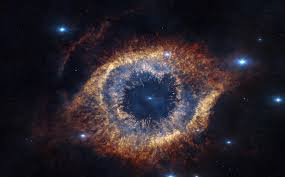
“… When one embraces the universe, one becomes harmonized and connected with all divine beings. One does not need to pray in order to obtain their response. It all depends upon whether one uses one’s mind broadly or narrowly. Spiritual connectedness is only one measure of what one can achieve …
… There is some dispute among modern minds as to how the world began. Those who hold the view of idealism believe the world was created by God. Those who hold the view of materialism believe the world is based on matter. However, long ago some ancient achieved human beings discovered that the origin and potency of the universe is chi. The first stage of pure existence is neither mind nor matter, but chi. Mind and matter are merely different expressions of this primal chi …
… Artificial religions .. Fortunately, the healthy ancient faith has been preserved in three different sources: Lao Tzu, Confucius, and Mo Tzu …
>>http://theartof12.blogspot.com/2017/12/israel-is-not-world-earths-god.html<<
CULTIVATION OF NINE HOUSES & EARTHSTYLE T’AI CHI, ET CETERA COYOTE LANE, ROBERTA KELLY
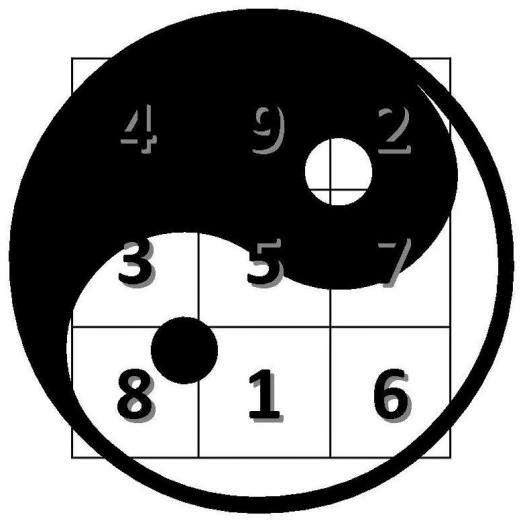
>>https://www.youtube.com/channel/UCF_LZhKB-PvP18NtE1MscQg<<
When the MIND is sick–
the sick, are not honoring HEALTHY MIND,
The MIND is every CELL–
BODY equals a universe within a UNIVERSE,
BIOWARFARE by design to control–
Human Beings exploited as CELLS, batteries, ENERGY,
NINE (9) CHAMBERS IN OUR BRAIN/S–
Gifts – Treasures – Powers – Super-natural – ENERGIES, BREATHE INTO,
EACH CHAMBER (compartment) INHALE-EXHALE NINE–
BREATHS – ONE THROUGH NINE, NOSTRILS (NOSE) BREATHE,
GATHER ENERGY – INHALING THE COSMIC–
ATTRACTING THE HEAVENLY, GROUNDED IN EARTH, BREATHE
>>https://theartof12.blogspot.com/2017/12/gold-for-oil-russia-china-et-al.html<<
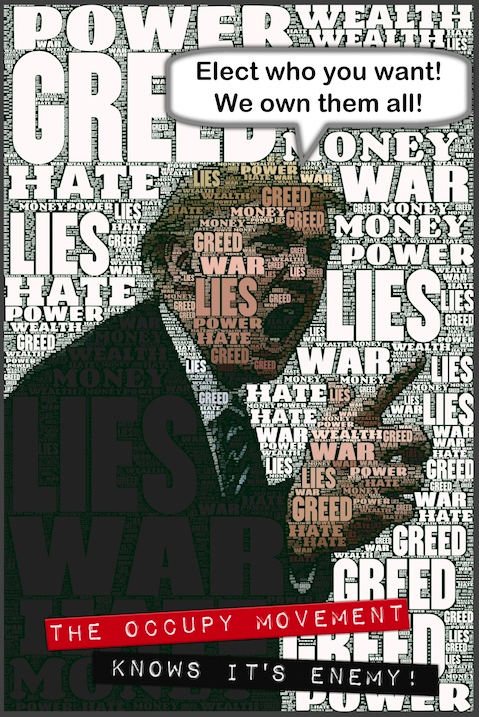
>>http://www.thedailysheeple.com/the-matrix-revealed-cartels-that-run-the-world_122017<<
CAN’T CHANGE THE WORLD UNTIL WE EVOLVE THE MIND, to be continued …
UNITED SLUMS OF APARTHEID OPINE DESIGN & CO~CREATE SANE REALITY
SHHHHHH
America, America ~ stumbled and fell–
down and counting, none can breathe freely,
Getting stoned, high, oblivious, face-planted–
wake and bake and all day long,
Night hiding more and more–
never enough smore, smore, wanna, gotta, gimme,
White drugs, pills, whatever SMORE–
gimme-gimme, gotta have a cauldron overflowing, bubbling,
Toil and trouble witches brew–
evildoers call the game citizens line up,
Wall Street takes bets, racketeering–
jerking, pulling rugs, slitting throats from behind,
Knowing U S of A–
can NOT get up Mother Earth weeping,
Kuan extends beyond physical structure–
temple, shrine, a way of life, self,
Contemplation is not stuck in–
the head, thinking with heart, feeling in,
Brain, mind every cell, cells–
counting more than a universe Wu Wei,
deepest atonement nature, not superficiality–
Body, unity with All AND All, ALL,
Constant self-contemplation, introspection, alchemy, cultivation–
artificiality is a tomb in eternity co-created,
Check in to reality choose–
over and over and over subterranean form,
Human being maybe – maybe not–
nature is our partner dying killed nuked,
Wake up and understand life–
a non-negotiable energy, chi, qui, ki, free,
T’ai Chi, Yoga, how many–
cycles in a day do Americans cultivate?!
Roberta Kelly, December 2017
>>http://www.chemtrailcentral.com/<<
>>http://theartof12.blogspot.com/2017/12/world-wars-until-no-more-planet-earth.html<<
WORLD WAR III?!! HELLO ZIONISTS, JEWS, CHRISTIANS, MUSLIMS, ET AL THE REALITY IS, HUMAN BEINGS ARE NOT SEPARATE FROM OWN SPECIES
WAR EQUALS MASS MURDER WITH THE REALITY OF PSYCHOPATHS AS THOUGH TOTALLY ABOVE ANY AND ALL LAWS
The Criminalization of War. Tun Dr. Mahathir’s Open Letter to Muslims in Saudi Arabia, the Gulf States and Yemen
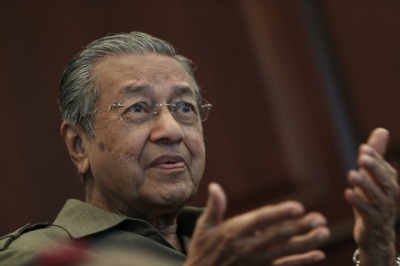
Global Research has received from Tun Dr. Mahathir Mohamad, 4th Prime Minister of Malaysia (1981-2003) an important message, addressed to Muslims in Saudi Arabia, the Gulf States and Yemen.
This message, however, is also addressed to the U.S. and its indefectible British ally which have relentlessly supported Saudi Arabia’s war against the people of Yemen, a criminal act tantamount to genocide under international law.
The U.S. has been instrumental in supporting the naval blockade on the delivery of food and medicine to Yemen’s starving children. In turn, the corporate media has payed lip service to the inaction of Western governments and their self-proclaimed “international community”. Both the US and Britain have sold billions of dollars of weapons to Saudi Arabia, while also advising them on the conduct of military operations.
Let us support this important message of Tun Mahathir who in the course of the last twelve years has sought to criminalize war as well as indict the political architects of modern warfare.
The Kuala Lumpur Initiative to Criminalize War
In 2005, after having served as Prime Minister of Malaysia for 22 years, Tun Dr. Mahathir Mohamad initiated a pathbreaking endeavor which consisted in criminalizing of all acts of war. This historic initiative under the helm of Tun Dr. Mahathir resulted in the formulation of “The Kuala Lumpur Initiative to Criminalize War”:
“Killings in war are as criminal as the killings within societies in times of peace. Since killings in peace time are subject to the domestic law of crime, killings in war must likewise be subject to the international law of crimes. This should be so irrespective of whether these killings in war are authorized or permitted by domestic law.”
The full text of the December 2005 Declaration to criminalize war is included below.
Read the Declaration carefully. It is an important document.
Tun Mahathir “has a dream” that one day all wars will be abolished. The signatories of the December 2005 share Tun’s resolve to abolish all wars. We call on our readers to share that dream, to send Tun Mahathir’s message far and wide, to change the course history,
Michel Chossudovsky, Signatory of the 2005 Kuala Lumpur Initiative to Criminalize
***
Open letter from Dr. Mahathir bin Mohamad to the Muslim community in Saudi Arabia, the Gulf States and Yemen
The Kuala Lumpur Declaration to Criminalize War
Text of Declaration
15 December 2005
THE Kuala Lumpur Global Peace Forum of concerned peoples from all five continents
UNITED in the belief that peace is the essential condition for the survival and well-being of the human race,
DETERMINED to promote peace and save succeeding generations from the scourge of war,
OUTRAGED over the frequent resort to war in the settlement of disputes between nations,
DISTURBED that militarists are preparing for more wars,
TROUBLED that use of armed force increases insecurity for all,
TERRIFIED that the possession of nuclear weapons and the imminent risk of nuclear war will lead to the annihilation of life on earth.

From Left to Right: Francis A.Boyle, Helen Caldicott, Denis J. Halliday, Tun Dr. Mahathir Mohamad, Hans-Christof Von Sponeck, Michel Chossudovsky, Imam Feisal Abdul Rauf
To achieve peace we now declare that:
- Wars increasingly involve the killing of innocent people and are, therefore, abhorrent and criminal.
- Killings in war are as criminal as the killings within societies in times of peace.
- Since killings in peace time are subject to the domestic law of crime, killings in war must likewise be subject to the international law of crimes. This should be so irrespective of whether these killings in war are authorized or permitted by domestic law.
- All commercial, financial, industrial and scientific activities that aid and abet war should be criminalised.
- All national leaders who initiate aggression must be subjected to the jurisdiction of the International Criminal Court.
- All nations must strengthen the resolve to accept the purposes and principles of the United Nations Charter and institute methods to settle international disputes by peaceful means and to renounce war.
- Armed force shall not be used except when authorised by a Resolution passed by two-thirds majority of the total membership of the General Assembly of the United Nations.
- All legislators and all members of Government must affirm their belief in peace and pledge to strive for peace.
- Political parties all over the world must include peace as one of their principal objectives.
- Non-Governmental Organisations committed to the promotion of peace should be set up in all nations.
- Public servants and professionals, in particular in the medical, legal, educational and scientific fields, must promote peace and campaign actively against war.
- The media must actively oppose war and the incitement to war and consciously promote the peaceful settlement of international disputes.
- Entertainment media must cease to glorify war and violence and should instead cultivate the ethos of peace.
- All religious leaders must condemn war and promote peace.
To these ends the Forum resolves to establish a permanent Secretariat in Kuala Lumpur to –
IMPLEMENT this Initiative.
OPPOSE policies and programmes that incite war.
SEEK the cooperation of NGOs worldwide to achieve the goals of this Initiative.
Signed by:
Tun Dr. Mahathir Mohamad
Imam Feisal Abdul Rauf
Prof. Francis A. Boyle
Dr. Helen Caldicott
Mr. Matthias Chang
Prof. Michel Chossudovsky
Prof Shad Saleem Faruqi
Mr Denis J. Halliday
Dato’ Mukhriz Mahathir
Dr. Chandra Muzaffar
Dato’ Michael O.K. Yeoh
Mr. Hans-Christof Von Sponeck
WORLD WAR AGAINST HUMANS W/ NO END BUT VERY AWFUL
We bring robots to life: http://www.hansonrobotics.com/
AN AGENDA? PLEASE, HOW CAN THE WORLD READY FOR THIS INSANE CRIME?
